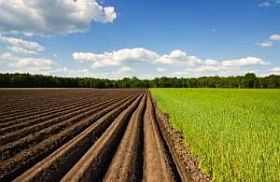Agriculture, EU – Baltic States, Financial Services, Forum, Legislation, Markets and Companies
International Internet Magazine. Baltic States news & analytics
Thursday, 25.12.2025, 06:37
Agriculture and Fisheries Council meeting
 Print version
Print version
The Agriculture and Fisheries Council’s meeting takes place in Brussels during 18 and 19 March 2013, under the presidency of Mr. Simon Coveney, Irish Minister of Agriculture, Food and the Marine. The Commission is represented by Dacian Cioloş, Commissioner for Agriculture & Rural Development. Both days are dedicated to agricultural matters as the Council seeks to agree a negotiating mandate on CAP Reform.
Source: European Commission, Memo /13/225, 17 March 2013.
Agriculture
 |
|---|
The Council holds discussions (web-streamed "live") during Monday and Tuesday with a view to reaching a general approach on Common Agricultural Policy, CAP.
The Council’s negotiating position, based on the Commission's four proposals to reform the Common Agricultural Policy (CAP) have been presented in October 2011 – see IP/11/1181.
On Monday, 18 March, the discussions were dedicated to trilateral talks between the Presidency, individual Member States and the Commission.
Together with the recent negotiating mandate voted on 13 March 2013 by the European Parliament Plenary session, the Council negotiating position will pave the way for the beginning of trilogues in April 2013 between the Commission and other two EU institutions. The shared objective is to come to a political agreement on the reform by the end of June 2013. Formal adoption of the definitive legislative texts as a 1st reading agreement will follow in the autumn.
Reference: http://europa.eu/rapid/press-release_MEMO-13-225_en.htm?locale=en
Four proposals for discussion
- For direct payments, the Commission proposed in October 2011 to support farm income in a fairer, better targeted and simpler way, in particular with a more equitable distribution of funds between farmers, between regions and between member states (respectively internal and external convergence), and 30% of the payments reserved for a "greening" payment linked to certain sustainable agricultural practices. Other elements include a compulsory higher rate of payment for young farmers in the first 5 years after installation, and the establishment of a Small Farmers Scheme. At the time of the February 2013 Council the Presidency already circulated a paper setting out a number of amendments to the Commission proposal.
- The Commission proposal on the Single Common Markets Organisation puts forward more responsive and better suited tools to address crisis management, including a generalised safeguard clause enabling the Commission to take emergency measures to respond to general market disturbances. It also looks to improve rules on the recognition of Producer Organisations and inter-branch organisations. In more specific terms, the Commission is proposing to end the sugar quota regime in 2015.
- On Rural Development, the Commission's proposal aims at a more flexible system aimed at supporting measures to maintain our natural resources such as agro-environment schemes, encouraging investment and innovation, providing incentives for farmers to work together in producer organisations and to establish risk management schemes, and backing broader measures for economic development in rural areas.
- The Commission’s proposals also involve a "horizontal regulation" covering the financing, management and monitoring of the CAP. These aim in particular at a simpler and more efficient CAP. To avoid unnecessary administrative burdens, the Commission proposed to simplify several administrative mechanisms, without losing efficiency, as well as aid to help small farmers through a flat rate per farm. The proposal also involves a series of rules on transparency on beneficiaries of CAP payments (see IP/12/1006).
Among other issues, the Dutch delegation briefed the Council on the ban which Russian authorities were considering to impose on seed potatoes from the EU.
The public debates can be followed by video streaming: http://video.consilium.europa.eu.








 «The Baltic Course» Is Sold and Stays in Business!
«The Baltic Course» Is Sold and Stays in Business!

